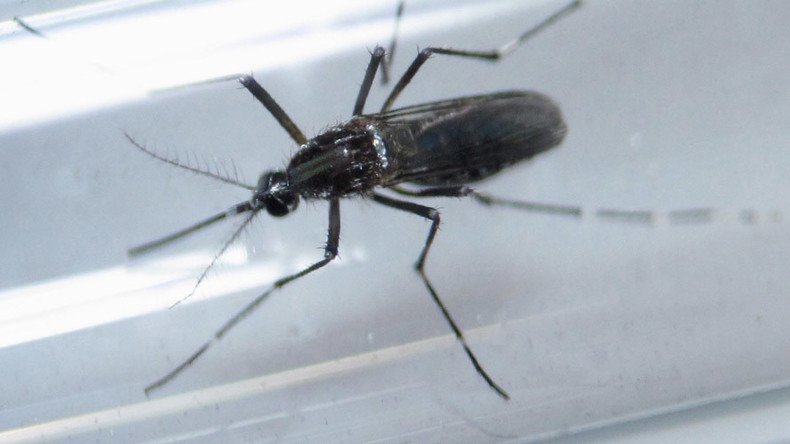‘A massive policy failure’: UN-body admits its fault for Zika virus spread

The World Health Organization (WHO) has made a startling admission saying it is partly responsible for the outbreak of the Zika virus. The agency said the failures to prevent its spread had created a “significant threat to global health.”
The UN agency admitted its failure to introduce mosquito control policies over the last few decades has led to the current Zika virus problem.
Dr Chan: #Zika reveals an extreme consequence of the failure to provide universal access to sexual and family planning services #WHA69
— WHO (@WHO) May 23, 2016
"The spread of Zika... (is) the price being paid for a massive policy failure that dropped the ball on mosquito control in the 1970s," the head of WHO Margaret Chan said at the world health body’s annual assembly, as cited by AFP.
The Zika virus, which is present in 60 countries, has led to a marked increase in the number of births with a microcephaly defect, which is when babies are born with abnormally small heads and brains. It can also cause the rare but serious neurological disorder Guillain-Barre Syndrome.
Bigger than Ebola? #Zika virus genome mapped amid new warning https://t.co/zYic6O7HLDpic.twitter.com/0hed8dZpAL
— RT (@RT_com) February 21, 2016
People are normally infected by mosquito bites, but there is also evidence that the virus can pass as a result of sexual contact. Latin America and the Caribbean have been hit hardest by the Zika outbreak and as Chan points out this region has “the highest proportion of unintended pregnancies anywhere in the world."
"Zika shows an extreme consequence of the failure to provide universal access to sexual and family planning services," she mentioned, according to AFP.
Brazil has been the hardest hit country, with more than 1.5 million people infected, while there have been around 1,400 cases of microcephaly in infant children.
Dr Chan: For #Zika, we are again taken by surprise, with no vaccines and no reliable and widely available diagnostic tests #WHA69
— WHO (@WHO) May 23, 2016
"With no vaccines and no reliable and widely available diagnostic tests, to protect women of childbearing age, all we can offer is advice," Chan said.
"Avoid mosquito bites, delay pregnancy, do not travel to areas with ongoing transmission."
However, Rio de Janeiro is set to welcome hundreds of thousands of visitors in just a few months’ time when the city hosts the 2016 Olympics.
The organizers have already announced a number of measures to shield the public from the virus. Organizers are offering more than 450,000 free condoms to athletes at the Rio village. The free condom dispensing machines will be available to athletes to include roughly 300,000 male condoms and 100,000 female condoms in addition to 175,000 sachets of lubricants.
On May 15, the Mayor of Rio again tried to reassure the general public that the Zika virus will not pose a threat to the games.
“There’s not many cases of the Zika virus, especially in the city of Rio. There is the issue with pregnant women and this is something we need to take care of, but I don't know anyone who's got the Zika virus and I know a lot of people so this is not a big issue,” Eduardo Paes told Sky News.
“You’ve got to come and enjoy,” he said. “It is an amazing city, an amazing place. People are completely safe here.”
This admission of the WHO’s mismanagement of the Zika virus will come as further embarrassment for the organization after their mishandling of the Ebola outbreak, which killed more than 10,000 people in West Africa.
The agency delayed declaring it an epidemic for two months because of fears it could have had on local economies, while it also could have interfered with the Muslim pilgrimage to Mecca.
WHO 'failed to alert' global community abt Ebola outbrk allowing it to spread further–panel https://t.co/Gx5wxxTM1Hpic.twitter.com/o0zzq77WLL
— RT (@RT_com) November 23, 2015
It took the World Health Organization (WHO) until August 7, 2014, to finally call the outbreak a public health emergency. By August 4, 2014, the death toll from the disease was already approaching 1,000, while the WHO stated on their website at the time: “This is currently the largest EVD outbreak ever recorded.”
Michael Osterholm, an infectious diseases expert at the University of Minnesota, said, "That's like saying you don't want to call the fire department because you're afraid the fire trucks will create a disturbance in the neighborhood."













